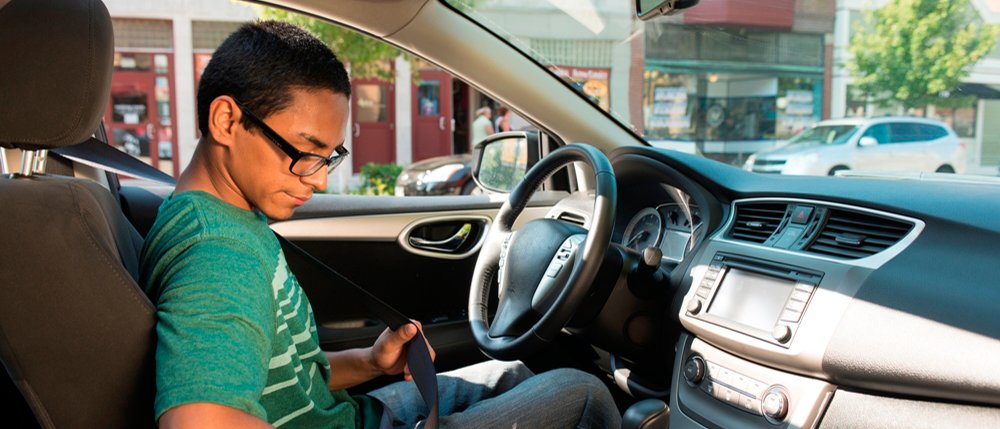The first vehicles didn't go very fast
In the late 1800's Karl Benz's Motorwagen achieved speeds of sixteen kilometres per hour. This may have seemed fast compared to horses, which walk at about six kilometres an hour and trot at about thirteen kilometres per hour. Ford's Model T could achieve speeds of about 70 kilometres per hour, which may have seemed breakneck in that era, but it's likely that they went much slower because the roads weren't paved and they were sharing the roads with pedestrians and slow-moving horses.

Fast forward to today
Today's vehicles are built solidly, can achieved speeds in the hundreds of kilometres an hour, they drive on paved roads, and many city roads and suburban plans are designed around the vehicle. With faster speeds comes the risk of more collisions but thankfully, vehicles are designed with many more safety features today:
- Seatbelts: Most vehicles can seat between five to eight people (each with their own seatbelt). These strong-webbed belts restrain people from flying around the cabin of the vehicle in the case of a collision
- Air bags: Airbags are tightly compressed balloons that are tied to collision-sensors and can expand out in a fraction of a second to cushion the impact and keep vehicle occupants protected from the hard surfaces. Vehicles are coming with an increasing number of airbags throughout the passenger cabin
- Special glass: Many people don't realize this but the glass in a vehicle is special glass that not only provides stability to the vehicle (and can help to protect occupants in the case of a rollover) but is also designed to crumble instead of shatter when broken. Although crumbled glass can still injure, it is much safer than shards of glass that might fly around during a collision
- Crumple zones: Vehicle chassis are designed to be very strong but the vehicle is divided into crumple zones so that the front (engine compartment) and rear (trunk) of the vehicle will collapse and help to take the energy of a collision
- Signals and lights: Signals and lights – and even your horn – are safety features as well. They are there to help you communicate with the traffic around you and alert them to your presence and driving intentions
- Vehicle controls: Vehicle controls are put close to the driver, perhaps right on the steering wheel, to help the driver make changes to the temperature in the vehicle or the radio station without taking their hands far from the wheel or their attention off the road
More safety features are being added to vehicles all the time
Audio controls that can recognize thousands of commands will make it easier for drivers to control the cabin environment without taking their attention from the road. GPS is another safety device, helping drivers find their way without having to rely on a distracting map. All of these features are amazing, and would stun anyone who saw the first horseless carriages roll off the assembly line over a century ago. There's one important lesson to remember: All of these safety features don't replace safe driving. We can rely on these safety features in a collision but they do not give us permission to drive any less carefully.

